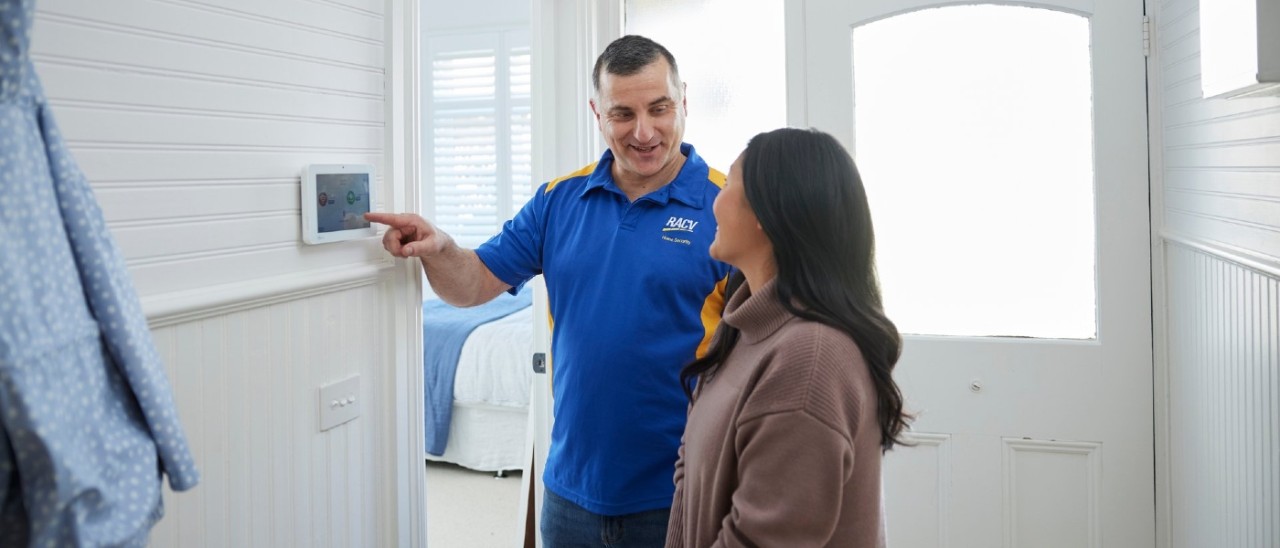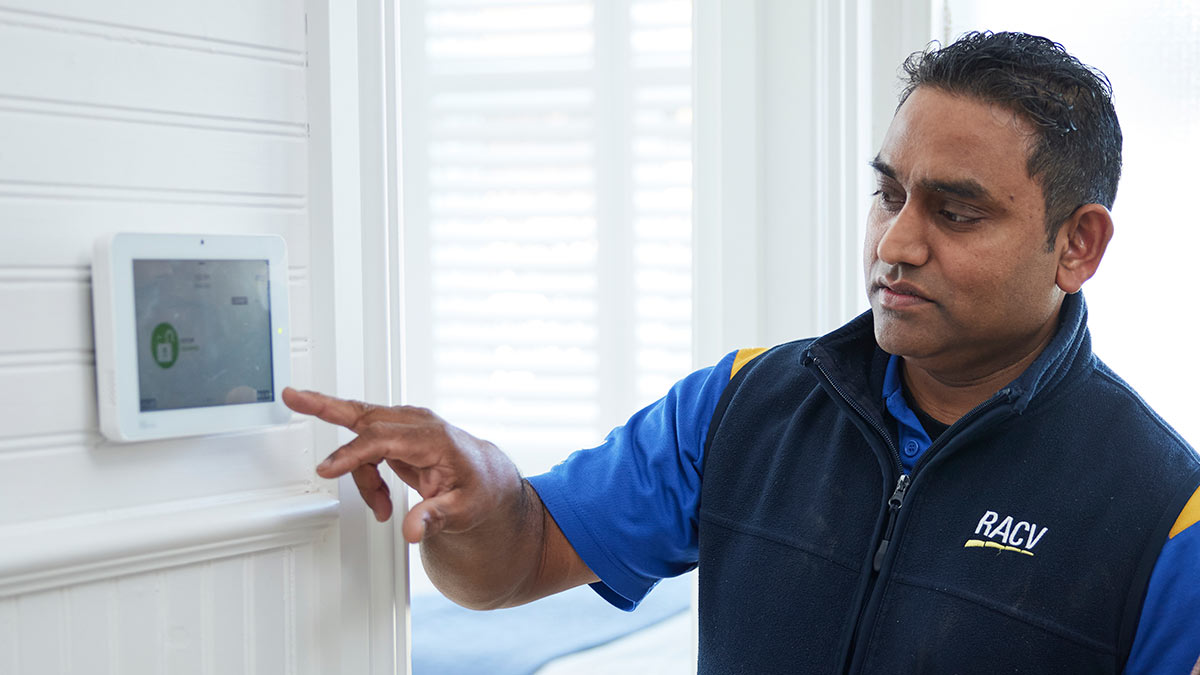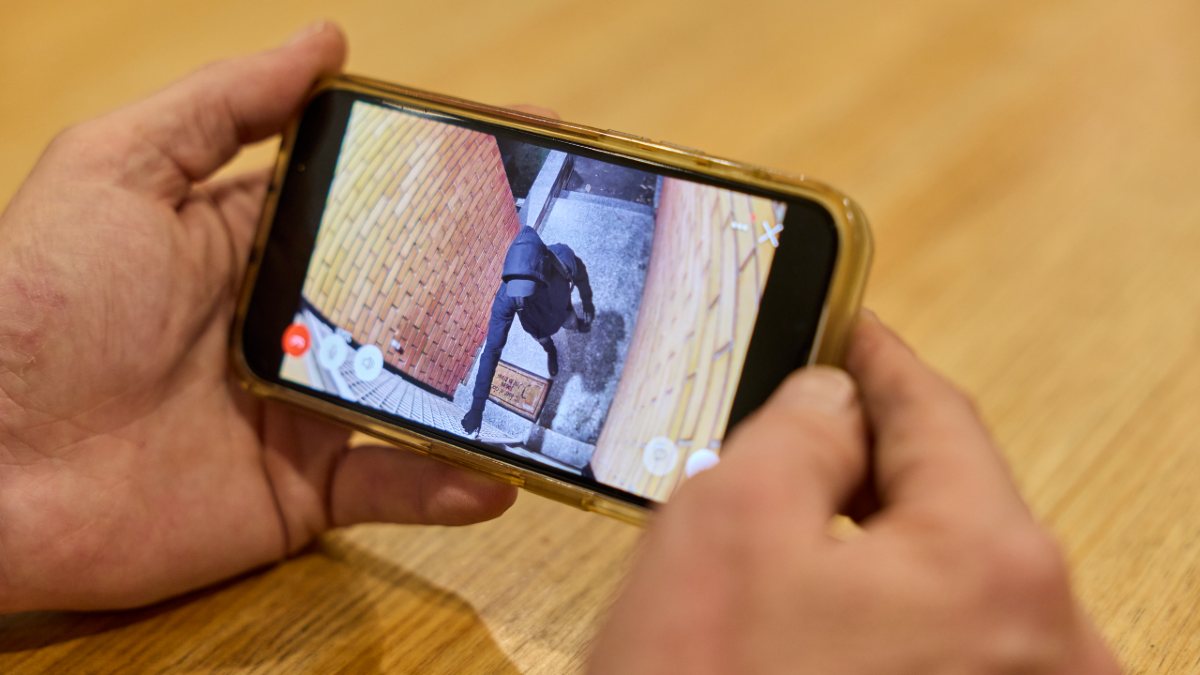Having your home burgled is unsettling. Here are some key ways to improve your home security and help burglar-proof your home.
Home security guide: CCTV, alarm systems and monitoring

A quality home security system tailored to your property by a qualified, licensed installer can help deter thieves and provide peace of mind. Our comprehensive guide to CCTV, home alarms and monitoring will help you mount a strong defence against would-be intruders.
You can never be too cautious when it comes to protecting your home and personal belongings, so investing in CCTV security cameras and an alarm system with professional monitoring 24/7 is highly recommended.
Home break-ins and burglaries remain a significant problem in Victoria, with Crime Statistics Victoria reporting more than 30,000 burglary and break-and-enter offences at residential locations in the year ending June 2025 - a 13.9 per cent increase on the year prior.
Being proactive, by installing a quality home security system, can help deter thieves and provide you with peace of mind.
Practical guides to help you protect your property
Best types of home security
Community Crime Prevention Victoria says Closed Circuit Television (CCTV) installed at your home can deter potential offenders from criminal activity and, in the event of a break-in, help police with a burglar’s identification, investigation and prosecution.
Other experts such as Neighbourhood Watch, which developed the How Safe is My Place program in partnership with RACV, suggest that visible security alarms and smart home security technology can also be effective tools in showing people that your property is secure - providing an extra level of deterrence.
The best security systems are those which use a combination of measures tailored to your premises – and which don’t breach Victoria’s privacy laws – so using a qualified and licensed installer (with Private Security Individual Registration) will help you achieve this.

An alarm system should be tailored to your home and easy to use, with your licensed technician providing basic training when it's installed.
CCTV security cameras – the benefits
CCTV usually comprises several cameras strategically placed to monitor entry points, the perimeter of the home and specific areas such as the garage, tool shed or where other valuable assets such as boats and caravans are parked.
A CCTV system allows you to live stream what’s happening around your home and to review footage after an event has occurred, usually via an app on your smartphone or computer. This could be used to help police solve a crime.
When clearly visible, the cameras provide a visual deterrence to help prevent crime in your neighbourhood. However, CCTV security cameras are best used in conjunction with a house alarm system, which provides an extra level of deterrence and can alert you to an intrusion.
Read more: How to improve security in your neighbourhood
CCTV systems – what to look for
Rather than opt for a cheap DIY system or even fake cameras that are easy to spot and could undermine your home’s overall security, a CCTV system tailored to the property by a licensed professional will help ensure adequate survellience of your property.
They can advise on the number of cameras needed based on the potential security threats around your home, installation options (such as cabling or wireless) and deliver a CCTV system that’s high quality, reliable and easy to use.
For the best performance, the cameras should be high-definition, heavy-duty and weatherproof, with automatic night vision for clear pictures even when it’s dark. The CCTV system should support live streaming and playback via an app or home monitor, with high-definition recordings able to be stored for several weeks at a time.
As well as providing a tailored solution, a licensed security installer should also offer basic training on system operations, professional installation (with warranty on parts and labour) and servicing and maintenance.
They should also be familiar with Victoria’s privacy laws, which require that the CCTV system is highly visible – supported by window stickers, for example – and doesn’t intrude over the boundary fence, into a neighbour’s property. Private areas such as bedrooms and bathrooms must also be avoided.
Read more: What burglars want to steal most from you

Many households appreciate the convenience of home security systems that allow you to monitor security camera footage via a smartphone app. Photo: Matt Harvey
Home alarm systems and monitoring – the benefits
Home security alarm systems are designed to detect intruders, warding them off if they enter your premises or reducing the time they might spend inside.
Most alarm systems have a main control panel connected to devices such as motion sensors and reed switches. The latter use a magnetic field and detect intrusion when the doors or windows are opened.
Whether you’re sleeping or away from home, alarm systems provide peace of mind, especially when combined with 24/7 back-to-base professional monitoring, where specially trained consultants will respond by actioning your nominated emergency response plan.
This might be calling you or someone you have nominated, sending a security patrol guard or, in some cases, sending emergency services.
Your alarm system may also have the option of smoke detection integration, which can report back to the monitoring team.
If you have an existing house alarm that’s less than 15 years old, you may be able to have the system monitored, so speak to a security professional.
Read more: What to do after a burglary
Home alarm and smart home security systems – what to look for
There’s really no substitute for a high-quality, well-integrated and easy-to-use alarm system that’s tailored to your home and installed by a licensed technician.
Every home and every homeowner’s requirements are different, so a qualified professional will be best placed to assess your property and provide a detailed plan covering sensor placement, wired or wireless installation options, advice on pet-friendly detectors, and more.
You should look to companies that provide basic training when your system is installed – such as knowing what to do if the alarm is accidentally triggered – plus ongoing support and over-the-phone assistance when you need it at no additional cost.
There should be a warranty on parts and labour and options for servicing and maintenance of your system, which should provide years of hassle-free operation but will benefit from servicing every 12 to 24 months to ensure ongoing reliability.
Also expect the alarm system to be integrated with a smartphone app.
For a fully integrated alarm system compatible with a modern smart home, your licenced security adviser should also be able to offer alternatives that combine seamlessly with CCTV cameras and come with other benefits such as real-time mobile alerts.
Read more: How to find a home insurance policy that suits your needs
I rent - can I install a home security system?
There are rules in Victoria as to what modifications renters can make to rental properties.
So long as the rental property is not heritage listed, renters in Victoria do not need the rental provider's consent to install security lights, cameras and systems as long as they are not hard wired, do not impact the privacy of neighbours and can be easily removed.
Rental providers also cannot unreasonably refuse a renter's request to install modifications that are for reasonable security measures, including security systems installed by a qualified installer (make sure you keep the invoice).
Read more: The minimum rental standards all rental properties in Victoria must meet
RACV Security Pty Ltd ABN 49 079 148 342 trading as RACV Home Security. Security Licence (Vic.) 733-411-10S and Security Registration (Vic.) 733-411-31S.


